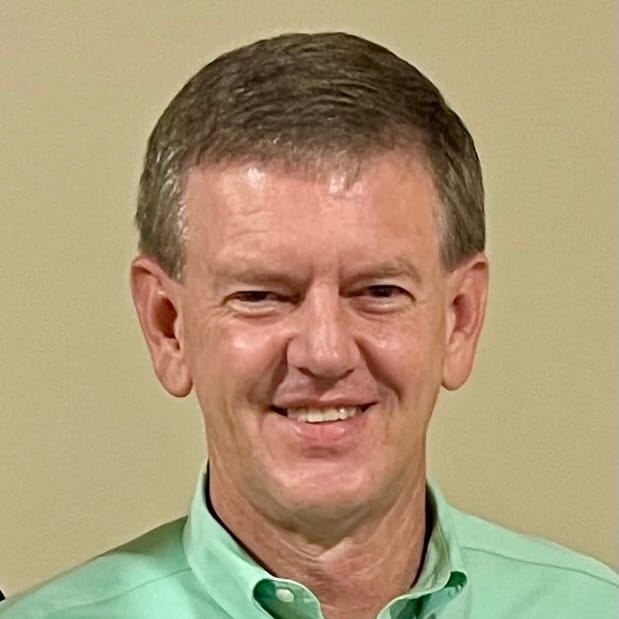The SSUT Debate: Protecting Alabama’s counties, small and rural communities
Guest Opinion by Don Wallace, Hale County Commissioner

Guest Opinion by Don Wallace, Hale County Commissioner
In recent weeks, we have seen the largest cities in this state claim that the distribution of online sales taxes, commonly referred to as SSUT, is “fundamentally imbalanced” and a “threat to large cities in Alabama.” Having the unique experience of serving as a county commissioner in one of the state’s larger counties, Tuscaloosa, and a commissioner now in a smaller, struggling Black Belt county, Hale, it is my belief that there is a fundamental misunderstanding of the SSUT system. Further, there seems to be a callous disregard for the problems a vast majority of our county governments and small municipalities face.
Claiming that the system is imbalanced and robs larger cities of local tax revenues, my friends at the City of Tuscaloosa have gone so far as to approve filing a lawsuit against the distribution of the current 8% online sales tax, that divides the revenues 50-50 between state and local governments. However, by comparing the SSUT tax distributions between Tuscaloosa and Hale counties, the total distributions to the smaller are 1% less than their respective population. Looking at the hard numbers, Tuscaloosa County entities received over $19.2 million in SSUT, while its neighbors to the south received just under $1 million.
There also seems to be a misunderstanding of how the overall system works. While it may be true that some purchases within a city may be treated differently because they were made online, there are balances within the SSUT system. For example, when someone in a rural community makes an online purchase in NYC and has it delivered to their home, everyone, including the larger cities, receive a portion of the taxes on that sale. In fact, I recently purchased 5 items from online retailers for items that would not be found in Tuscaloosa, yet they get a portion of those online taxes.
Another factor in this debate, relates to policies, that for decades have been a detriment to smaller communities that struggle to maintain infrastructure, keep hospitals and schools open. These regulations make it extremely difficult for small businesses and hospitals to survive. Conditions have seen counties like Perry and Greene decline significantly in population, pushing more people into cities. This has detrimental health and economic impacts on the rural areas and, in turn, adds to the burdens that the larger cities face. It’s time to help our rural areas meet their infrastructure needs and encourage more balanced, organic growth. These SSUT distributions, based on the current models, have been a lifeline for many of the other 455 municipalities and all 67 counties in Alabama. I would also remind the Big 10 Mayors, that their efforts to strip money away from their local county government would have negative impact on their citizens as well.
When I served as Tuscaloosa County Commissioner for 8 years, I represented one of the largest geographical districts in Alabama, representing affluent areas and very rural, isolated places as well. It was understood that I had a duty to work to improve roads and bring water to areas in need across the rural areas, and it was also understood that the City residents were “county taxpayers” as well. It is a duty of the local county government to provide for the courthouse administration of tags, licenses, court systems and services that ALL residents depend on. Reallocating SSUT taxes would have a negative impact on services that every resident, rural or city, depends upon, not to mention justice at a time we have seen repugnant, heinous crimes against children in our area. For example, Tuscaloosa City received $8,161,898 in SSUT, while Tuscaloosa County received $7,619,420 in Fiscal 2024. Those revenues are growing at about 13% annually, based on information readily available on the state’s MAT website. If the City were to take $4 million of those funds away from the County government, the impact on courthouse service, the sheriff department, and our justice system would be detrimental to citizens of the City also.
I am most disappointed in the notion that the rural communities are taking advantage of and are a threat to the big 10 cities in this state. Local governments signed up for this program and only when the revenues began growing substantially did these cities claim it was unfair. Yet the program was successfully designed to help lift all local governments by collecting many previously uncollected taxes from online sales. The fact that the Hale County Commission received less than $500,000 or that the Town of Akron collected $18,438 is not a threat to Huntsville, Mobile, Birmingham or anyone else. Thank goodness the rural town of 600 nearby, struggling to keep a gas station open because of regulations, has a Dollar General and also received $45,600 in SSUT last year. The very idea that it is a threat should they receive $50,000 in SSUT distributions this year to help maintain minimal services to their community is palpably false. If anything, the efforts to take money away from them amounts to “Reverse Robin Hood” as one county leader described it.
In closing, as a commissioner in a large county, we would not tolerate conditions for a week that are sadly a way of life in most rural areas that have seen roads built 60 years ago start to deteriorate rapidly. We worked to help our local schools in ways that just aren’t possible in many areas of our state, such as where I serve now. If I could encourage our large city mayors to do anything, it would be to improve some of the business offerings that are missing in their communities, strive for regulatory reform that encourages competition and opportunities for small businesses to survive and grow in rural communities; and other measures to help balance growth, not consolidate population with all the health, welfare, and other challenges that come with it.
Don Wallace owns a CPA firm in Northport. He previously served as a Tuscaloosa County Commissioner from 2004-2012, and was elected in 2022 to the Hale County Commission. He was the 2009 National Republican County Official of the Year and President of the National Conference of Republican County Officials in 2011. He has also served as a Vice-Chair of the Alabama Republican Party.
Opinions do not reflect the views and opinions of ALPolitics.com. ALPolitics.com makes no claims nor assumes any responsibility for the information and opinions expressed above.




